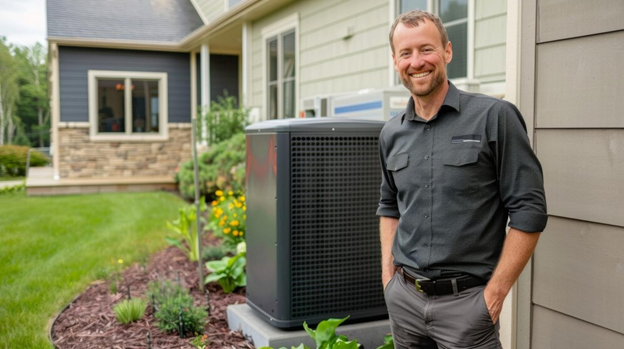DIY Tips to Maintain Your Home’s Heating and AC Systems

Keeping your home’s heating and air conditioning (AC) systems in top condition is essential for comfort and energy efficiency. Regular maintenance not only prolongs the lifespan of these systems but also helps you avoid costly repairs. With a few simple do-it-yourself (DIY) tips, you can ensure your residential heating and AC units stay in optimal working condition.
1. Clean or Replace Air Filters Regularly
One of the easiest and most effective ways to maintain your HVAC system is by cleaning or replacing the air filters regularly. Clogged filters restrict airflow, making your system work harder and less efficiently. Check your filters monthly and replace them every 1-3 months, depending on usage and filter type.
2. Keep Outdoor Units Clear
Ensure that your outdoor AC unit is free from debris such as leaves, branches, and dirt. Clear any obstructions around the unit to allow proper airflow. Trim vegetation and bushes around the unit to maintain adequate clearance. This simple step can improve the efficiency and lifespan of your AC system.
3. Check and Clean Condenser Coils
Inspect the condenser coils of your AC unit regularly and clean them as needed. Over time, dirt and debris can accumulate on the coils, hindering heat transfer. Use a soft brush or vacuum to remove dirt and debris gently. Cleaning the coils annually can improve the efficiency of your AC system and prevent breakdowns.
4. Schedule Annual AC Service
Regular maintenance by a professional HVAC technician is crucial for the longevity and efficiency of your air conditioning system. Schedule an annual ac service to have your unit inspected, cleaned, and tuned up. A professional technician can identify and address any issues before they escalate, ensuring optimal performance.
5. Inspect and Clean Air Ducts
Inspect your home’s air ducts for any signs of leaks, damage, or blockages. Use a flashlight to check for dust, debris, or mold growth inside the ducts. If necessary, hire a professional residential heating repair service to remove built-up dirt and improve airflow. Properly sealed and clean ducts can enhance the efficiency of your HVAC system.
6. Test Thermostat Settings
Regularly test and calibrate your thermostat to ensure accurate temperature control. Check the batteries in your thermostat and replace them if necessary. Consider upgrading to a programmable or smart thermostat for greater energy savings and convenience. Proper thermostat settings can help optimize your heating and cooling system’s performance.
7. Insulate and Seal Ductwork
Improve the efficiency of your HVAC system by insulating and sealing ductwork in your home. Inspect ducts for any signs of leaks or gaps and use duct sealant or foil tape to seal them properly. Additionally, insulate exposed ducts in unconditioned spaces such as attics and crawl spaces to prevent energy loss.
8. Clean Vents and Registers
Regularly clean vents and registers throughout your home to ensure proper airflow and distribution of heated or cooled air. Use a vacuum or damp cloth to remove dust and debris from vents and registers. Unblock any obstructions that may restrict airflow, such as furniture or curtains.
By following these DIY tips, you can maintain your home’s heating and AC systems efficiently and effectively. Remember to prioritize safety and consult a professional HVAC technician for any complex repairs or issues. With regular maintenance, you can enjoy optimal comfort and energy savings year-round.






